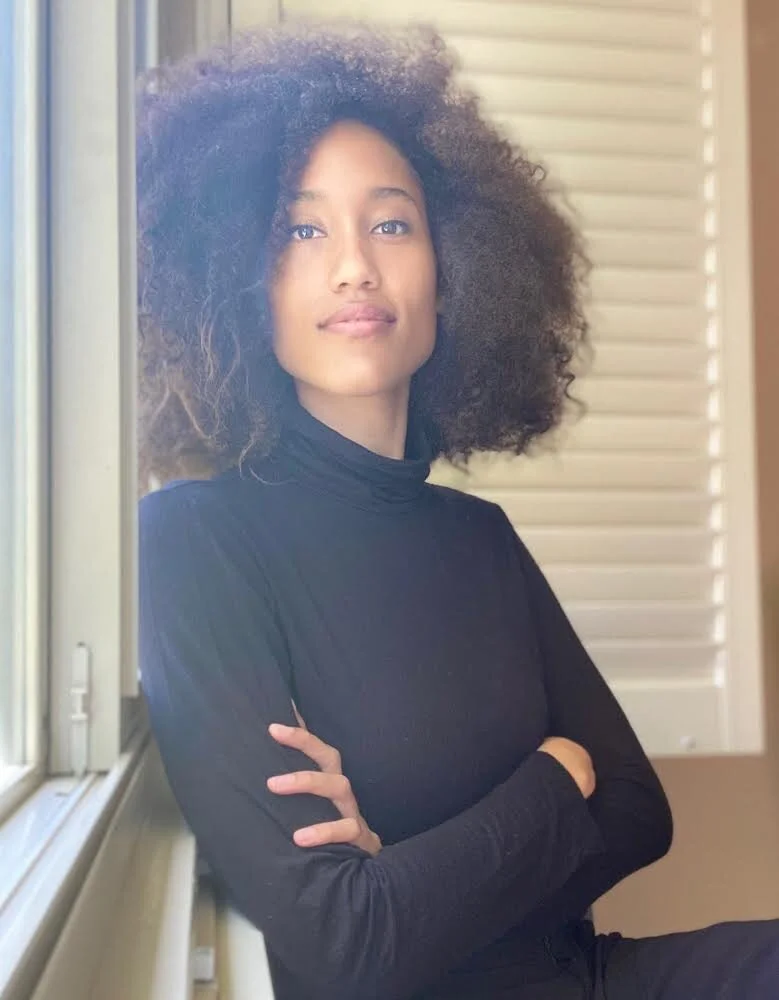Spotlight: Anna Malaika Tubbs, Ph.D. Candidate, Author, and Mother
Anna Malaika Tubbs just published The Three Mothers: How the Mothers of Martin Luther King, Jr., Malcolm X, and James Baldwin Shaped a Nation, which explores the impact of three of the most famous Black men in U.S. history through the lens of their mothers.
Anna Malaika Tubbs is a Ph.D. candidate in Sociology at Cambridge University and a writer and speaker on issues of gender and race. She was born in Albuquerque, New Mexico and spent her childhood in Dubai, Estonia, Sweden, Mexico, and Azerbaijan. Now she lives in Northern California with her husband Michael and their son Michael Malakai.
Poppy Seed Health caught up with Anna to discuss her first book, The Three Mothers: How the Mothers of Martin Luther King, Jr., Malcolm X, and James Baldwin Shaped a Nation, which was published this month, as we celebrate Black History Month. The Three Mothers explores the impact of three of the most famous Black men in U.S. history through the lens of their mothers. Alberta King, Berdis Baldwin, and Louise Little were born within six years of each other, and their legacies have a lot to teach us about our current moment in time. These three women not only birthed our revered civil rights heroes, but also paved the way for the stories that Malcolm, Martin, and James carried with them about their families’ experiences, and the stories each shared with the world.
The Three Mothers is further proof that we have much to learn from Black women and especially Black mothers.
Anna, congratulations on publishing your first book this month and being reviewed in the New York Times! That’s a big deal. Can you share what your book is about for those who haven’t read it yet?
Thank you so much! Much has been written about Berdis Baldwin's son James, about Alberta King's son Martin Luther, and Louise Little's son Malcolm. But virtually nothing has been said about the extraordinary women who raised them. In TheThree Mothers, I celebrate Black motherhood by telling the story of the three women who raised and shaped some of America's most pivotal heroes.
Berdis Baldwin, Alberta King, and Louise Little were all born at the beginning of the 20th century and forced to contend with the prejudices of Jim Crow as Black women. These three extraordinary women passed their knowledge to their children with the hope of helping them to survive in a society that would deny their humanity from the very beginning—from Louise teaching her children about their activist roots, to Berdis encouraging James to express himself through writing, to Alberta basing all of her lessons in faith and social justice. These women used their strength and motherhood to push their children toward greatness, all with a conviction that every human being deserves dignity and respect despite the rampant discrimination they faced.
How did you end up writing this book? Had you been researching mothers or thinking about black motherhood? Why these three mothers in particular? Did you know when you started that these three women’s stories intertwined?
When I began my Ph.D., I knew I wanted to spend my time in the Academy joining others who corrected the crime of erasing Black women’s stories. I wanted to shine a light on the extraordinary feats of Black women and what these meant for our world. I wanted whoever read my work to see Black women the way I did: as powerful, brilliant, human, and deserving of long-overdue celebration and support.
But where should I start? How could I find evidence of lives that history had forgotten or intentionally buried? What could be my entry point to discovering incredible stories that were just waiting to be found? Men do not usually face the same level of erasure that women do in our society, they are given more than their due credit with countless books written about them and plenty of information available about their works and motivations. Therefore, starting with famous men made sense. From there, I would look into the women who existed in the shadows beyond that attention; attention that only continues to grow.
I started with the great Martin Luther King Jr. and Malcolm X, perhaps the two Black Americans most studied in history, and looked into the Black women who shaped them. I was, of course, immediately drawn to their mothers and their wives. I thought about the common saying that “behind every great man is a great woman,” a phrase I’m not a big fan of, and I changed to say; “before every great man is a great woman.”
Although there wasn’t much information online about Alberta King and Louise Little, from even the little I could find, I knew I’d found my focus. I found countless other stories of mothers I could have included but after watching I Am Not Your Negro, I thought Berdis and James Baldwin would further showcase the rich nuance and diversity of the Black American experience. Since the three men are so often put in conversation with each other, their mothers would bring a phenomenal new layer to the ongoing discussion.
Black storytelling is a highlight in our newsletter this month - the history of how the Black community has passed down traditions through storytelling. Is this book rooted in Black storytelling? If so, how?
Yes, in many ways! All three mothers taught their children about themselves, as well as their ancestors through stories as they sat at the kitchen table, as they walked with them to school. Alberta rooted many of her stories in her Christian faith, and she used them to help MLK Jr see that things like racism and classism were not meant to be accepted. Berdis told stories through letters that she wrote to her children, grandchildren, and even great-grandchildren, that were filled with lessons around the importance of practicing love and forgiveness. Louise told her children about her ancestry, as well as her activism, and she lived long enough to continue passing these stories on to her grandchildren as well. It is these stories that Malcolm, Martin, and James carried with them, they added to their family's generational knowledge through their own experiences, and shared such stories with the world.
Were there any stories that you discovered in researching or writing this book that surprised you?
The main surprise that I experienced was just how accurate my hypothesis was. These women so obviously influenced their son's journeys and works. Alberta taught her son the importance of boycotts and marches, the need to combine faith with social justice. Berdis was a writer herself and she passed this talent on to her children. Louise was an activist who believed in the importance of Black independence and self sufficiency. It made their erasure even more frustrating, there is no way that anyone can understand these men's journeys without knowing who they had to thank for them.
As a mother yourself, did you learn any lessons about Black motherhood as you wrote The Three Mothers?
Before becoming pregnant, while being pregnant, and during the first year of my son’s life, I was writing this book. Through researching and recovering the lives of Alberta King, Berdis Baldwin, and Louise Little, I was given the life-changing gift of studying three incredible mothers while diving deep into the world of maternal theory and learning about the liberatory power of revolutionary motherhood. As a result, I see mothers as the stars of the show, the shot callers, the ones in control of their and their families’ journeys. I see the changes that come with motherhood as awe-inspiring and powerful. This view of motherhood allows me to approach mothering both with confidence as well as a willingness to show my vulnerabilities - to celebrate myself and my parenting accomplishments, to also be okay with asking for help when I need it. They have taught me the importance of finding balance.
What do you hope readers take away from your book about Black motherhood?
At the center of The Three Mothers is a discussion of the dehumanization of all Black people. Motherhood is about creation, the giving of life, and this role becomes even more powerful in communities that are denied humane treatment on a daily basis. We as a Black community are continuing a long-fought struggle for our humanity, dignity, and worth to be recognized. This book, by focusing on Black motherhood, acknowledges that fight and shows how despite the many ways that our humanity has been denied in our nation, we have continued to find ways to humanize ourselves, give life, and move our country forward.
To purchase a copy of The Three Mothers: How the Mothers of Martin Luther King, Jr., Malcolm X, and James Baldwin Shaped a Nation by Anna Malaika Tubbs, consider buying from our favorite black-owned bookstore in The Bronx, The Lit.Bar, or your favorite black-owned bookstore near you.


